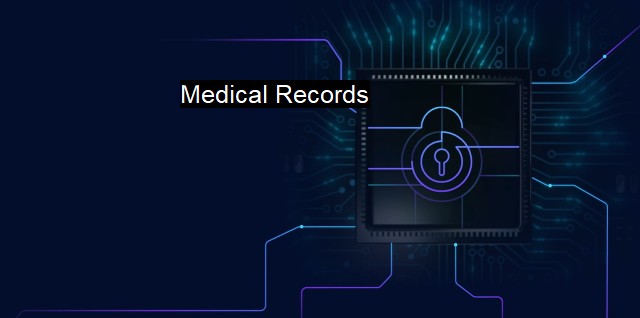What are Medical Records?
Securing Electronic Health Records: Navigating the Implications of Digitalization and Ransomware in Healthcare Management
The sensitive nature of health data places Medical Records among the categories of data that require utmost forms protection. Medical Records or Electronic Health Records (EHRs) are the digitized health information of individuals, referred to as Protected Health Information (PHI). These records consist of health history and may include details concerning allergies, medications, demographic information, medical procedures, all of which have been recorded by medical professionals over the course of a patient's healthcare experience.The protection of this personal health information is pivotal to maintaining patient confidentiality, protecting individuals from identity theft, as well as mitigating the risk of important information falling into unauthorized hands. Cybersecurity incorporates measures in place to thwart the efforts of cyber criminals intending to exploit vulnerabilities within the healthcare computer systems where data is stored, while keeping these systems available for legitimate operations.
The role of cybersecurity in relation to Medical Records is evident through measures such as data encryption, secure networks, firewalls, and strong authentication methods. the need for antivirus measures to be in context is equally critical. Viruses, which are malicious software created to infiltrate and damage computer systems, primarily aim to steal or disrupt the data within these systems. In a healthcare setting, this could mean getting unauthorized access to healthcare records and exploiting the sensitive information within these records.
Antivirus measures are essential in guarding these electronic health data systems against potential encroachments. An antivirus software is partnered with a database of virus signatures, which enables the anticipation and recognition of recognizable codes in Virus patterns. When these potential viruses are identified, the antivirus software disarms and removes them to maintain the integrity of the systems. In the instance of an unseen or unknown virus, the behaves strangely and uses heuristics, employing certain strategies to determine if the files or code are potentially harmful. These measures come together to assure the security of electronic health records.
Purposeful investments in professional cybersecurity measures are foundational to responsible healthcare operational systems. With the majority the movements in the healthcare sector towards digitalization, now more than ever, they need to be protected against ever-evolving malware, ransomwares, spywares and numerous other types of cyber threats intended to exploit vulnerabilities wherever they can be found.
Cybersecurity is not a standalone measure guaranteeing victory against cyber-attacks and threats. It thus entails securing entry points through antivirus protection, patching system vulnerabilities, encrypting data, and maintaining firewalls to keep threats as far away from healthcare systems as possible.
On a parting note, it is critical for organizations to perform regular system audits for data accuracy and to ensure the overall health of their data protection measures while factoring in compulsory staff training on privacy policies, principles and the importance of safeguarding online and offline data.
Cybersecurity and antivirus measures play a seminal role in protecting medical records and maintaining the integrity of electronic health record systems. Given the pervading nature of cyber threats, it necessitates that healthcare organizations and entities prioritize the strengthening of their security systems and remain continuously vigilant in their efforts to ward off malicious threats to their digital moorings. It is in the conjunction of the cybersecurity and antivirus measures, finely tuned to the uniqueness of Medical Records, that we find a more reliable and trustable assurance of protection against cyber threats.

Medical Records FAQs
What are medical records, and why are they important?
Medical records are documents containing patient information, such as medical history, treatment plans, diagnoses, and test results. They are important because they help doctors make informed decisions about the patient's care, track progress, and ensure continuity of medical treatment.How is cybersecurity relevant to medical records?
Cybersecurity is relevant to medical records because these documents contain sensitive, personal information that must be kept confidential and secure. Medical records can be targeted by cybercriminals who seek to steal or manipulate the data, causing harm to patients or healthcare organizations.What measures can be taken to protect medical records from cyber threats?
Several measures can be taken to protect medical records from cyber threats, including installing antivirus software, encrypting data, restricting access to sensitive information, training staff on cybersecurity best practices, and establishing protocols for detecting and responding to security breaches.What are the consequences of a data breach in medical records?
A data breach in medical records can result in serious consequences, including identity theft, financial loss, reputational damage, and legal penalties. Patients may lose trust in healthcare providers, and healthcare organizations may face lawsuits, fines, or regulatory sanctions. It is essential to take proactive steps to prevent data breaches and minimize their impact if they occur.| | A | | | B | | | C | | | D | | | E | | | F | | | G | | | H | | | I | | | J | | | K | | | L | | | M | |
| | N | | | O | | | P | | | Q | | | R | | | S | | | T | | | U | | | V | | | W | | | X | | | Y | | | Z | |
| | 1 | | | 2 | | | 3 | | | 4 | | | 7 | | | 8 | | |||||||